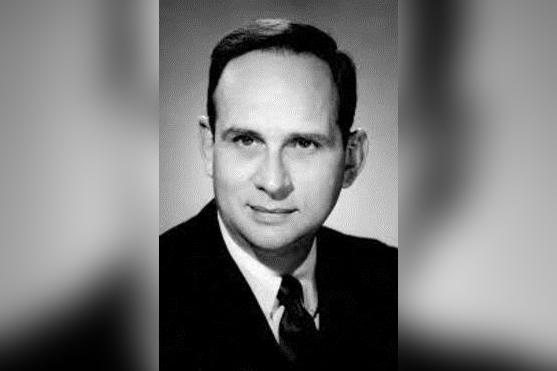

Glenn Snoddy, the founder of Woodland Sound and the dean of Nashville’s recording engineers, has died at age 96.
Snoddy was born in Shelbyville, TN on May 4, 1922. He learned radio technology while serving in the Army during World War II. After the war, he began working as an audio engineer at various Middle Tennessee radio stations, then went to work for the Brown Brothers Recording Service in downtown Nashville. This facility was the location of some of Music City’s earliest recording sessions.
He went to work for WSM radio in 1951. At the station, he engineered broadcasts of swing bands, the Grand Ole Opry, Ernest Tubb’s Midnight Jamboree, gospel shows and other diverse programs. He also worked at WSMV-TV, becoming a pioneering television engineer in Nashville.
In 1960, Snoddy became the chief engineer at Owen Bradley’s famed Quonset Hut on Music Row. He engineered all of Bradley’s productions of Patsy Cline, among others. He remained at the facility after Columbia Records bought it in 1962, working on records by such legends as Johnny Cash, Flatt & Scruggs, Ray Price, Carl Smith and Marty Robbins.
Snoddy was the engineer on the 1961 Robbins hit “Don’t Worry.” During the recording session, Grady Martin’s bass guitar fed a distorted signal through a faulty circuit in Snoddy’s mixing console. The engineer invented a circuit approximating this sound, which Gibson then marketed as an electric-guitar pedal. This was the birth of the fuzz tone used so memorably on “Satisfaction” by The Rolling Stones in 1965 and later extensively in psychedelic rock music.
During his years at The Quonset Hut, Snoddy also created the first stereo recording console in Nashville. He hired a then-unknown Kris Kristofferson to be the studio’s janitor.
In 1967, Snoddy took over an old movie theater in East Nashville and converted it into Woodland Sound Studios. At the time, it was one of the most technologically advanced recording facilities in the city.
Woodland was the site of the historic recording sessions for The Nitty Gritty Dirt Band’s 1971 collection Will the Circle Be Unbroken. Kansas recorded its “Dust in the Wind” 1978 rock hit there. The Charlie Daniels Band created its famed “The Devil Went Down to Georgia” in 1979 at Woodland. “Elvira” by The Oak Ridge Boys (1981) and “Honey” by Bobby Goldsboro (1968) are among the many other iconic hits from the studio.
Barbara Mandrell, Lefty Frizzell, Tammy Wynette, Willie Nelson, Billy “Crash” Craddock, Eddie Rabbitt, Johnny Lee, Loretta Lynn, Charlie McCoy, Clint Black, Roy Clark, Donna Fargo, Aaron Tippin, Rosanne Cash, Conway Twitty and many other country greats recorded hits at Snoddy’s studio.
Woodland also hosted John Prine, Neil Young, Andy Williams, Joe Simon, Linda Ronstadt, Lynyrd Skynyrd, John Hiatt, Amy Grant, J.J. Cale, Joe Tex, Tracy Nelson, The Indigo Girls, Jimmy Buffett, Slim Harpo, Gordon Lightfoot and other pop stars. It was notable as Nashville’s headquarters for black-gospel recording.
Snoddy expanded the studio to 16,000 square feet, making it one of the few rooms in Nashville big enough to record full orchestras. He upgraded to 24-track recording there. Woodland also housed a mastering facility.
Snoddy was long active in the Nashville chapter of the Recording Academy. He served as its board president in 1973-74. He remained at Woodland Sound even after selling it to AVI in 1980. He retired from the studio around 1990. Since 2001, Woodland Sound has been owned by the Americana-music team of Gillian Welch and David Rawlings.
In later years, Glenn Snoddy operated an antique mall for a short time on Old Hickory Boulevard in suburban Hermitage.
He passed away at his home in Murfreesboro, Tennessee on May 21.

About the Author
Robert K. Oermann is a longtime contributor to MusicRow. He is a respected music critic, author and historian.View Author Profile


